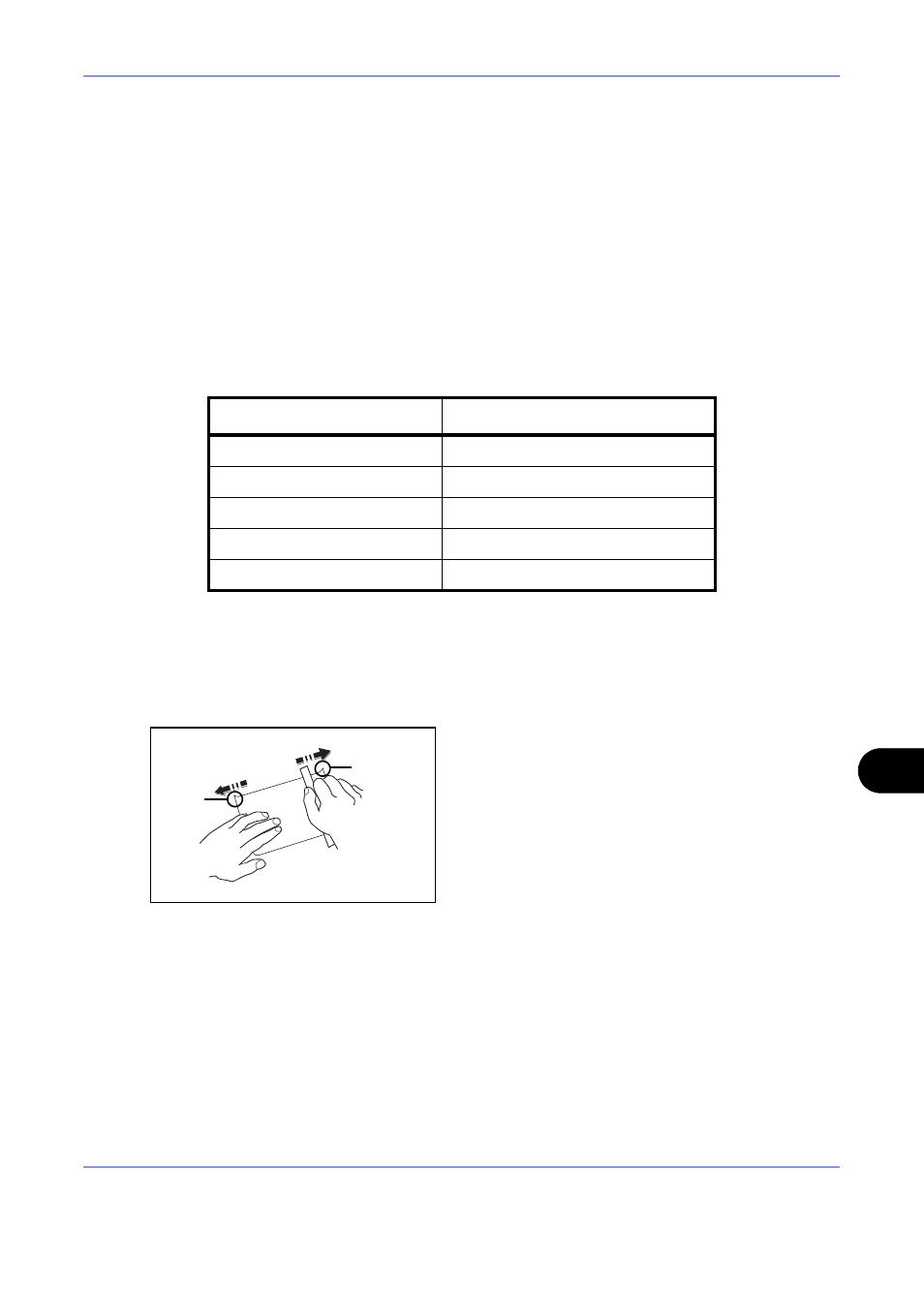TA Triumph-Adler DCC 2725 User Manual
Page 409

Appendix-15
Choosing Special Paper
Although special paper that meets the following requirements can be used with the machine, print quality will
vary considerably due to differences in the construction and quality of special paper. Thus, special paper is more
likely than regular paper to cause printing problems. Before purchasing special paper in volume, try testing a
sample to ensure the print quality is satisfactory. General precautions when printing onto special paper are given
below. Note that we are not responsible for any harm to the user or damage to the machine caused by moisture
or specifications of special paper.
Select a cassette or multi purpose tray for special paper.
Transparencies
Transparencies must be able to withstand the heat of printing. Transparencies must meet the following
conditions.
To avoid problems, use the multi purpose tray for transparencies and load transparencies with the long side
facing the machine.
If transparencies jam frequently at output, try pulling the leading edge of sheets gently as they are ejected.
Hagaki
Before loading Hagaki into the multi purpose tray, fan
them and align the edges. If the Hagaki paper is curled,
straighten it before loading. Printing onto curled Hagaki
may cause jams.
Use unfolded Oufuku Hagaki (available at post offices).
Some Hagaki may still have rough edges developed by
a paper cutter on the back side. Remove any such
rough edges by placing the Hagaki on a flat surface and
rubbing the edges gently a few times with a ruler.
Envelopes
Use the multi purpose tray for envelopes.
Due to the structure of envelopes, printing evenly over the entire surface may not be possible in some cases.
Thin envelopes in particular may be wrinkled by the machine in some cases as they pass through. Before
purchasing envelopes in volume, try testing a sample to ensure the print quality.
Storing envelopes for a long period may cause them to become wrinkled. Thus, keep the package sealed until
you are ready to use them.
Criteria
Specifications
Heat resistance
Must withstand at least 190°C
Thickness
0.100 to 0.110 mm
Material
Polyester
Dimensional accuracy
±0.7 mm
Squareness of corners
90° ±0.2°
Burrs
Burrs
